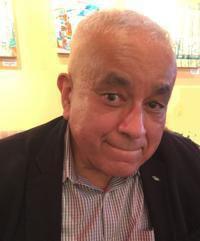
If you read newspapers, watch the TV news, monitor responsible social media, and stay informed, you won’t have doubts that wearing masks, maintaining social distance, hand washing, keeping away from restaurants and large gatherings, etc. are effective ways to avoid getting sick and staying alive. All the data in regard to these measures indicates that. But many see this as an infringement on their liberty.
Loud are the howls from those who resent the almighty arm of government, making us wear masks, locking us away in isolation, and making us foul our own nest by destroying the economy. They have a point.
But from another perspective they are like petulant children, refusing to play by the rules, even if verifiable facts tell us that we can dramatically reduce the death rate if we follow simple procedures. Yes, I know, many absolutely need to work and cannot stay home. And, yes, I know we need to save our economy before we destroy it. So, how do we find the balance we need? As a graduate of a liberal arts college, I know that a liberal arts education is meant to help us find answers to questions like this.
I fall back on the Freedom and Authority classes I took at Colorado College under the tutelage of Dr. Bill Hochman, shipwrecked WWII sailor and seeker who never tired of debating these issues. I was not a luminary in this field. I was an English major, after all. But even an average guy like me could understand some of the Enlightenment philosophy we read. Jean-Jacques Rousseau believed that only when humans evolve from a primitive “state of nature” to a state of “civilized society” can they achieve true freedom. Once civilized, people are free even if subject to political authority, or the “general will.” Majority rule, in other words, and if people don’t conform to the majority they must be coerced.
Unlike primitive societies where life is uncertain, a modern society will preserve your life and freedom as long as you go along to get along, and that is a good thing. This was Rousseau’s social compact and it’s still an influential idea. It went further.
Thomas Hobbes, writing during the chaos and violence of the English Civil War (1642-1651) postulated that only a “Leviathan,” the biblical monster he saw as metaphor for the absolute sovereign who could guarantee order, life and property, was necessary to eliminate the brutal existence of a raw state of nature.
For Hobbes, humans were never far removed from nature, which made them essentially brutish. Civilization was only a thin veneer. King George III was a Hobbesian in the absolutist way he treated the American revolutionaries. John Locke, who heavily influenced Jefferson, Franklin, Madison and other Founding Fathers, taught that all people have an inherent right, implied as God-given, to life, liberty, and property.
Jefferson added the felicitous phrase, “pursuit of happiness.” Most importantly, according to Locke everyone has the right, actually the moral duty, to preserve his or her own life, and no government can remove that. The ultimate logical implication for human relationships is obvious — if you must, kill or be killed — and from this come the “make my day” laws.
Contemplating these ideas, I still could not reconcile freedom with authority. It was only when reading the later philosopher, John Stuart Mill, that I reached some sort of balance. Mill is famous for his theory of free conduct, but it is justified only if it leads to good results.
For Mill, educated elites decide what are “good results.” He also declared that “my rights are worthless unless everyone has them.” Mill has been called the father of classic liberalism, understood as what some today call libertarianism. Locke believed that as much as possible we must do away with laws and regulations because they constrain individual liberty. I believe in this principle. But Locke also believed in the “harm principle.” This means that I can and must interfere — by passing and enforcing laws — with another’s liberty if that liberty allows the other to threaten or harm my liberty. And this is where we are right now. If you harm my life because of your refusal to follow COVID-19 rules, then I must act to force you to respect my right to life.
Joe Barrera, Ph.D., is the former director of the Ethnic Studies Program at UCCS, and a combat veteran of the Vietnam War. He teaches American Literature, Military History and U.S. Southwest History and Culture.
"freedom" - Google News
May 24, 2020 at 08:48PM
https://ift.tt/2LVYjly
COLUMN: Freedom and authority, liberty and security | Opinion - Colorado Springs Gazette
"freedom" - Google News
https://ift.tt/2VUAlgg
https://ift.tt/2VYSiKW
Bagikan Berita Ini














0 Response to "COLUMN: Freedom and authority, liberty and security | Opinion - Colorado Springs Gazette"
Post a Comment